Empathetic Nursing Care: Bridging Empathy Gaps Through Understanding
VerifiedAdded on 2023/06/07
|6
|674
|110
Report
AI Summary
This report delves into the concept of empathetic nursing care by examining perceived empathy gaps. It focuses on a specific individual (POF), an 80-year-old Thai woman with a gambling addiction, to explore the challenges in understanding her lifestyle and motivations. The report discusses the initial judgmental perspectives and the subsequent attempts to bridge the empathy gap through understanding the POF's perspective, including the excitement and sense of aliveness she derives from gambling. The application of the 'theory of mind' is explored through an immersion activity, simulating the experience of gambling to gain a deeper understanding of the POF's state of mind. References to relevant academic literature are provided to support the discussion on empathy and social cognition.
1 out of 6
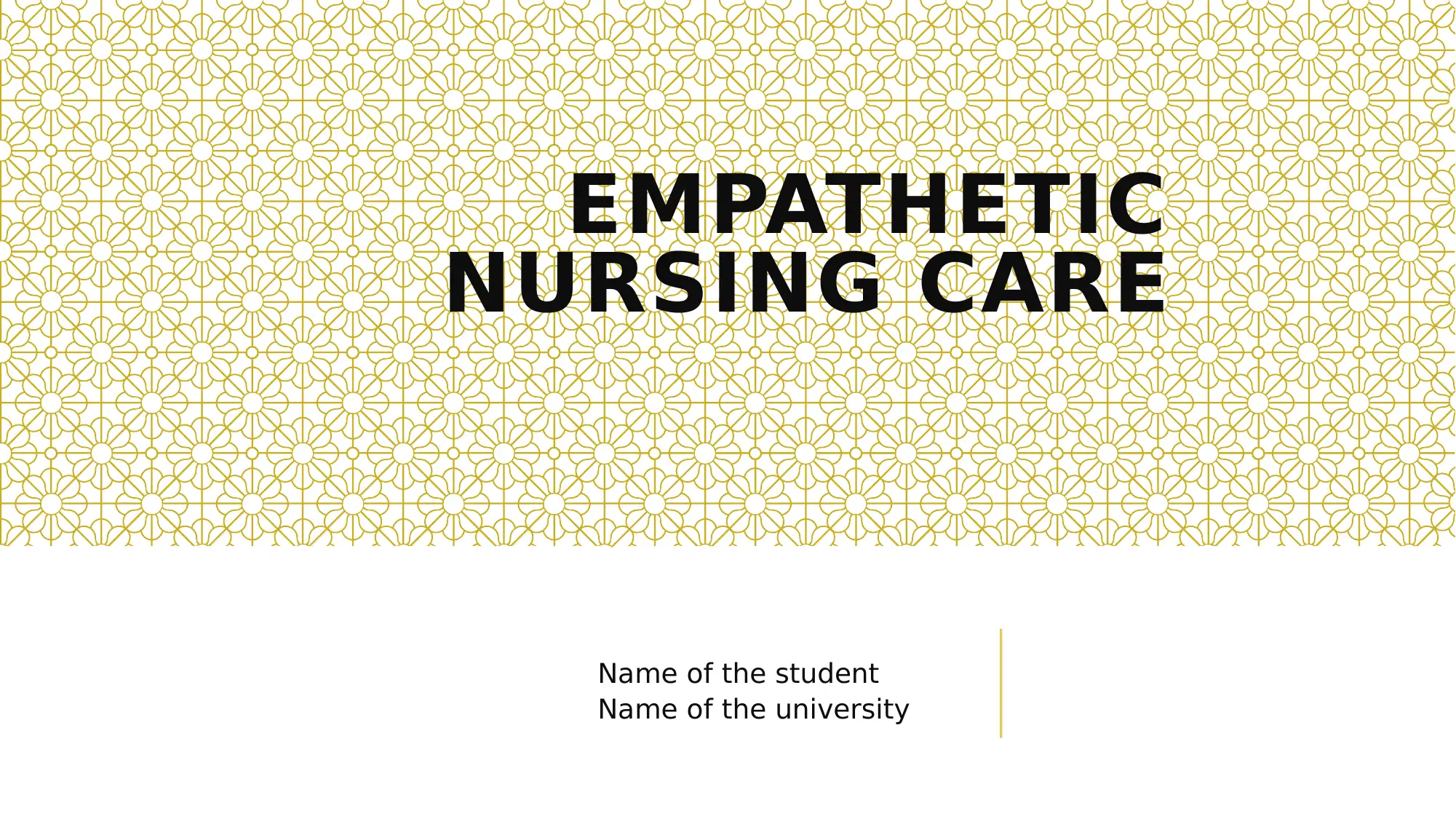
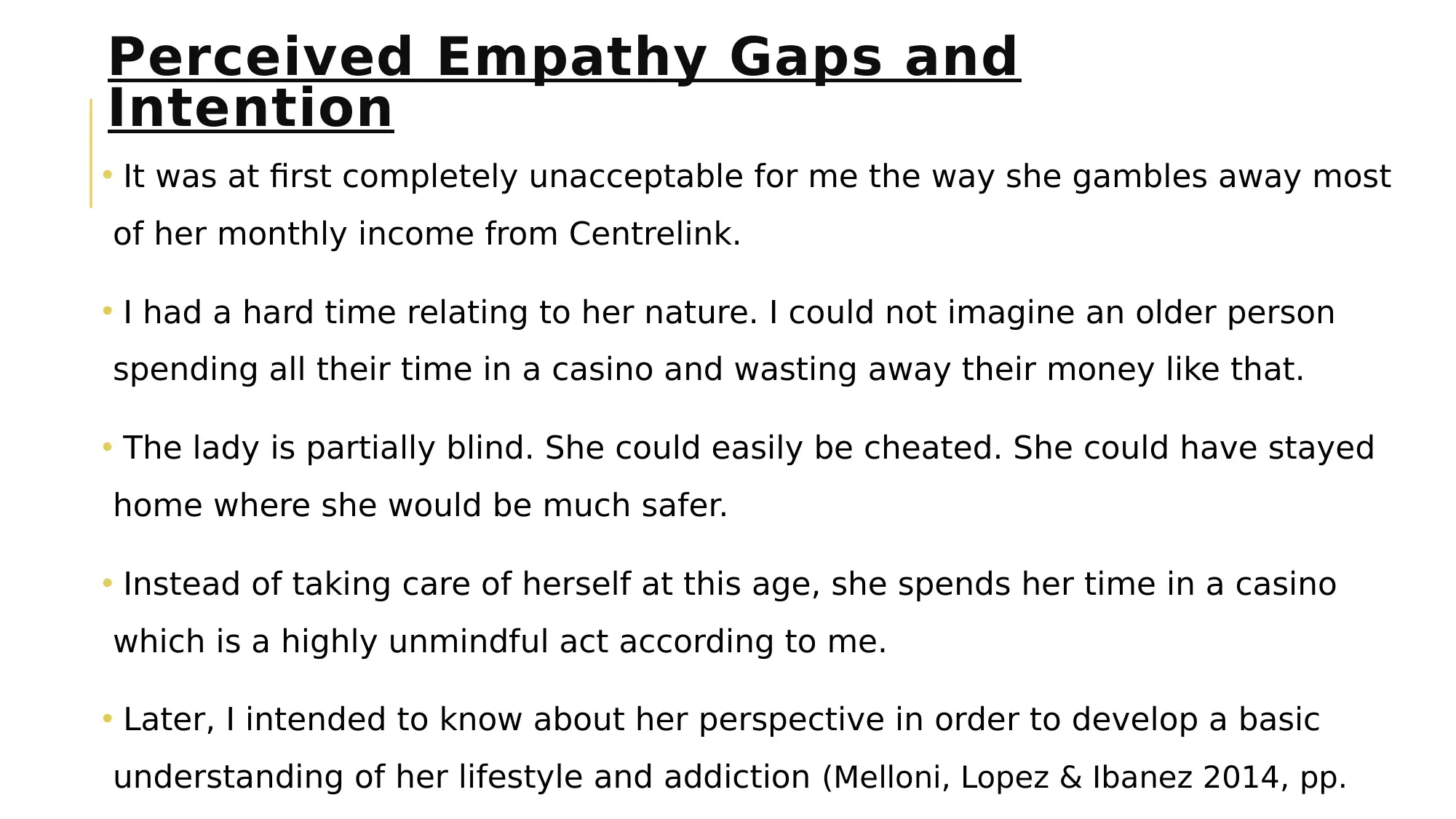
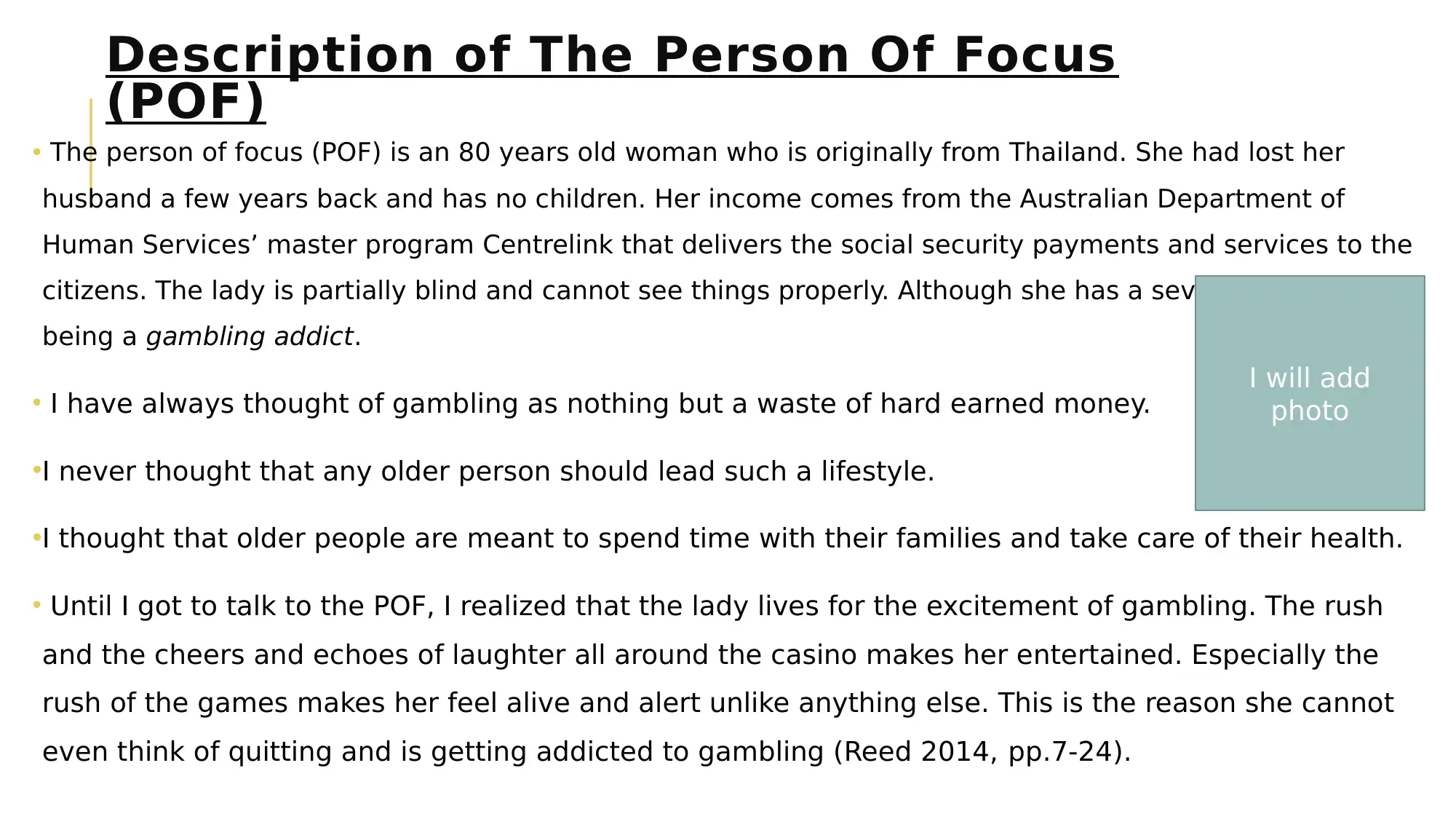

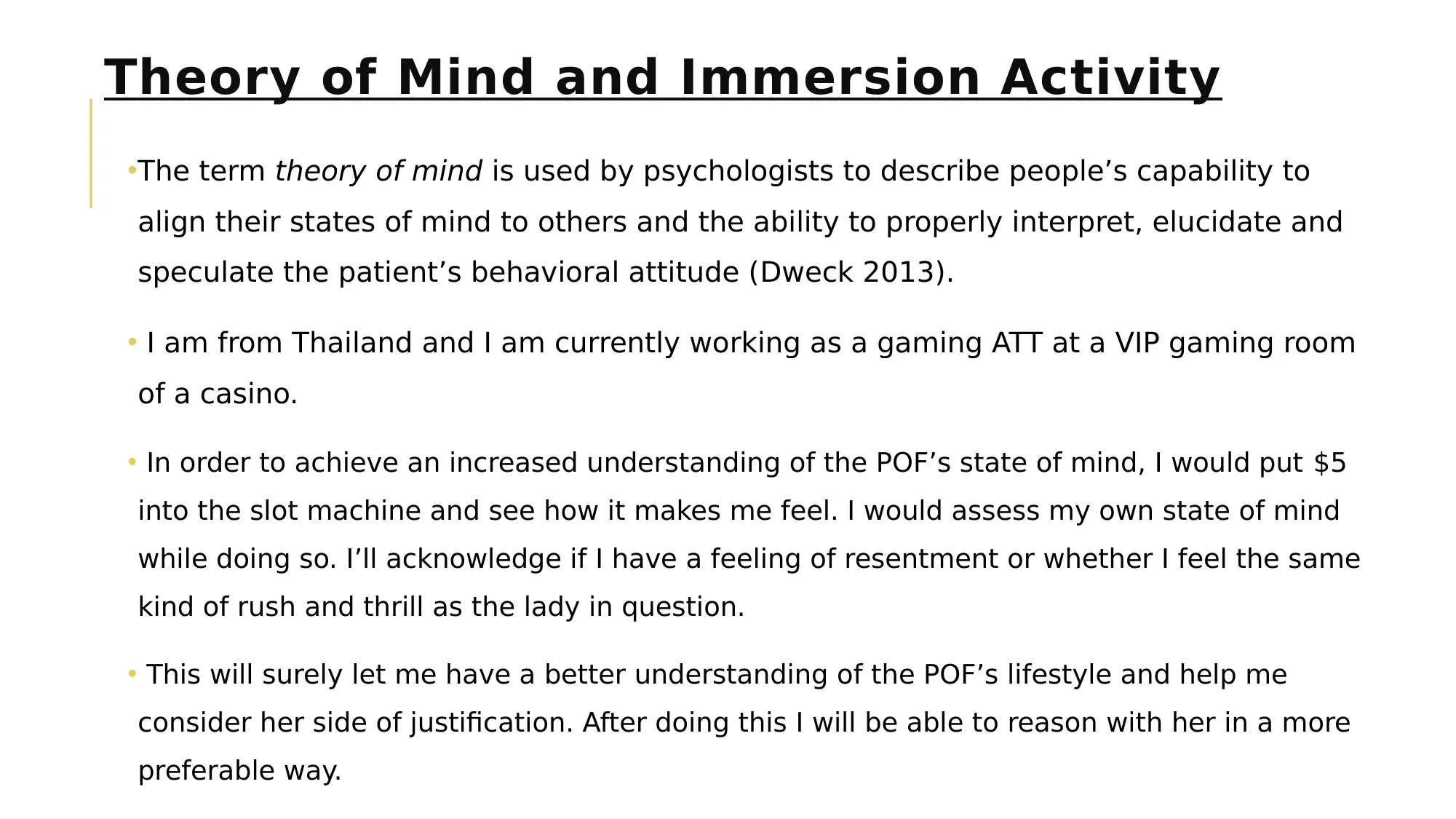
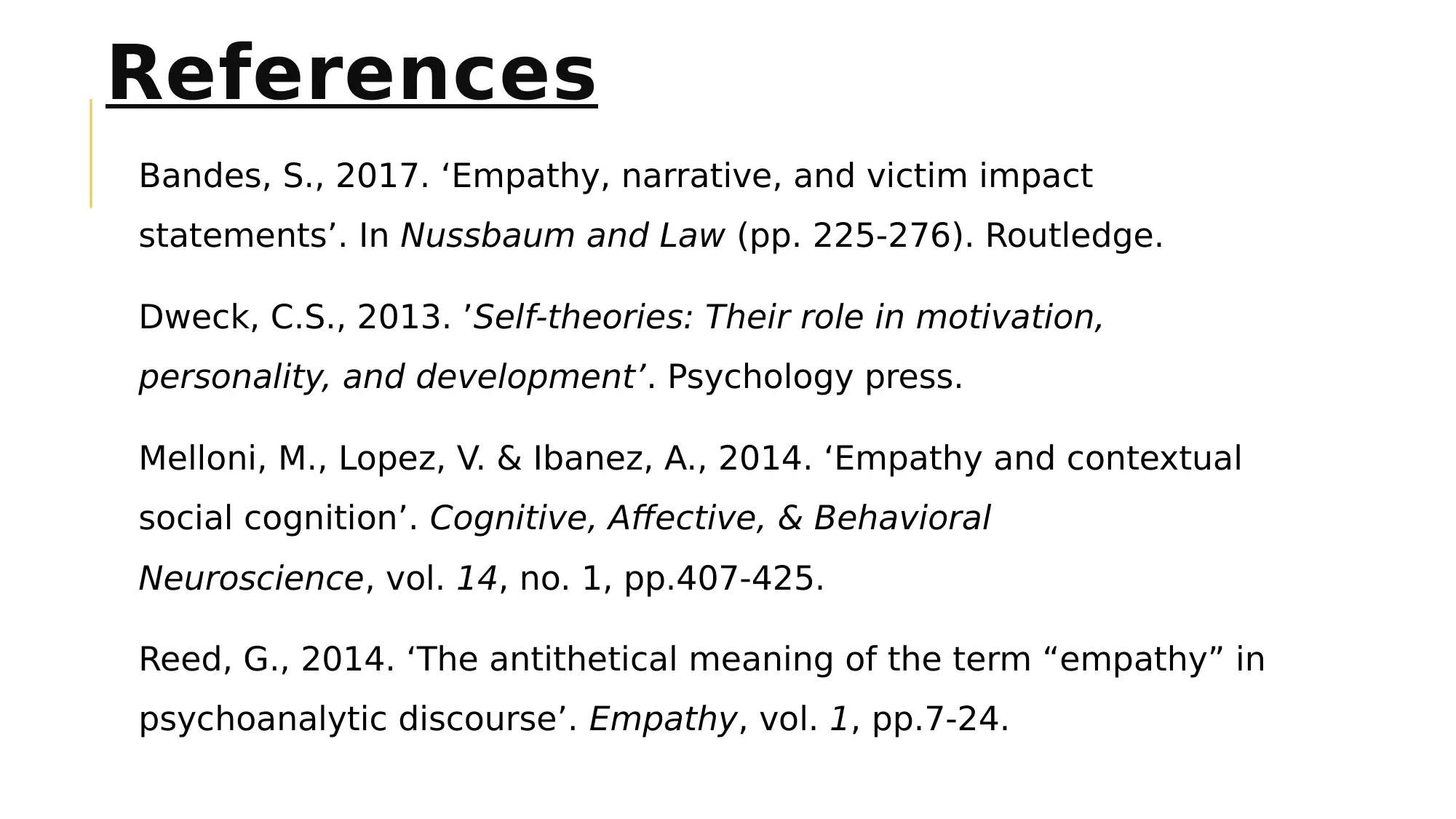


![[object Object]](/_next/static/media/star-bottom.7253800d.svg)